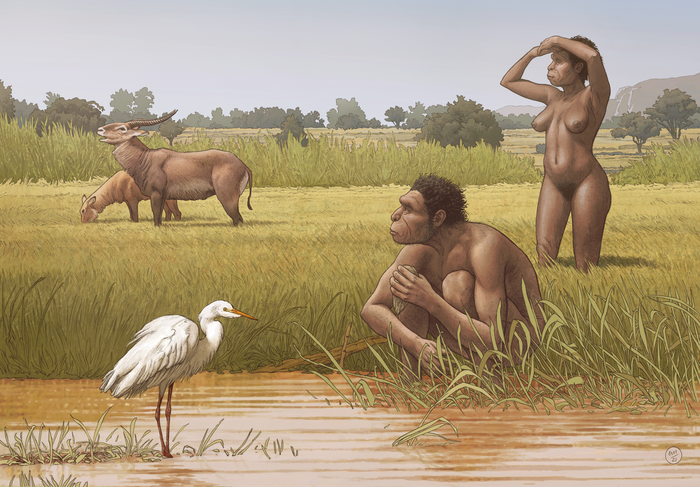New species of early human who lived 500,000 years ago named by scientists
Homo bodoensis lived in Africa during the Middle Pleistocene era and is thought to be a direct ancestor of modern humans

Your support helps us to tell the story
From reproductive rights to climate change to Big Tech, The Independent is on the ground when the story is developing. Whether it's investigating the financials of Elon Musk's pro-Trump PAC or producing our latest documentary, 'The A Word', which shines a light on the American women fighting for reproductive rights, we know how important it is to parse out the facts from the messaging.
At such a critical moment in US history, we need reporters on the ground. Your donation allows us to keep sending journalists to speak to both sides of the story.
The Independent is trusted by Americans across the entire political spectrum. And unlike many other quality news outlets, we choose not to lock Americans out of our reporting and analysis with paywalls. We believe quality journalism should be available to everyone, paid for by those who can afford it.
Your support makes all the difference.Scientists have announced the naming of a new species of human ancestor who first lived in Africa around half a million years ago.
Homo bodoensis existed during the Middle Pleistocene era and is the direct ancestor of modern humans, experts believe. The name bodoensis comes from a skull found in Bodo D’ar, Ethiopia.
Researchers say this period in history is vital because it also saw the rise of our own species (Homo sapiens) in Africa, our closest relatives, and the Neanderthals (Homo neanderthalensis) in Europe.
However, paleoanthropologists call this time “the muddle in the middle” because human evolution during this age is poorly understood.
Lead author, Dr Mirjana Roksandic, of the University of Winnipeg, Canada, said: “Talking about human evolution during this time period became impossible due to the lack of proper terminology that acknowledges human geographic variation.”
Under the new classification, H. bodoensis will describe most Middle Pleistocene humans from Africa and some from southeast Europe, while many from the latter continent will be reclassified as Neanderthals.
According to one of the co-authors, Christopher Bae, department of anthropology, University of Hawai’i at Manoa, the introduction of H. bodoensis is aimed at “cutting the Gordian knot and allowing us to communicate clearly about this important period in human evolution”.
Dr Roksandic concluded: “Naming a new species is a big deal, as the International Commission on Zoological Nomenclature allows name changes only under very strictly defined rules.
“We are confident that this one will stick around for a long time, a new taxon name will live only if other researchers use it.”
The findings are published in Evolutionary Anthropology Issues News and Reviews.
Additional reporting by PA
Join our commenting forum
Join thought-provoking conversations, follow other Independent readers and see their replies
Comments